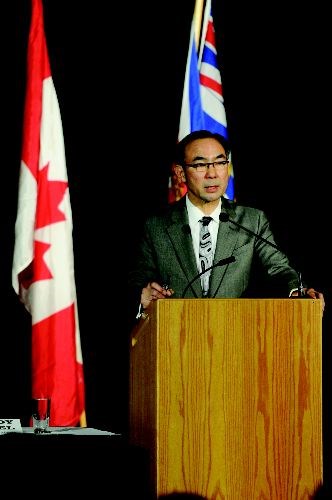Amid forecasts for significant economic development fueled by natural resource projects, the addition of engineering programs in northern B.C. are seen to be critical to the region's future development.
This was a message delivered by UNBC President George Iwama to attendees at the B.C. Natural Resource Forum in Prince George.
Likening the need for engineering specialists to the creation of the Northern Medical Program, Iwama emphasized that locally educated engineers are central to realizing economic development opportunities in ways that are appropriate to regional communities.
"The engineering community has long expressed the need for more engineers in northern B.C. and the current shortfall is estimated to be as many as 500," said Iwama.
"UNBC has a tradition of working with governments, communities, and industry to address regional needs for highly qualified personnel. The Natural Resources Forum provides the ideal venue for providing an update on our plans in relation to economic activity in the region."
UNBC currently offers a Bachelor of Applied Science degree in Environmental Engineering in partnership with the University of British Columbia.
The university's board and senate, however, have approved the addition of new majors in civil and mechanical engineering, once funding is provided.
The university has been exploring the possibility of basing teaching labs at engineering and industrial sites, integrating community-based engineering problems throughout the curriculum, and developing specializations in forest and wood products and energy systems.
Expansion of engineering education is consistent with the government of B.C.'s labour market outlook for this decade. The Ministry of Jobs, Tourism, and Innovation predicts that occupations in the natural and applied sciences will have the second-highest rate of growth (behind health occupations) in this decade.
In all, slightly more than one million jobs are expected to be created this decade, and more than three-quarters will require a post-secondary credential, according to the ministry.
Of the four regions predicted to have the greatest growth in employment in this decade, three are in B.C.'s northern region.
"Our greatest successes as a university have come when we have worked together with other post-secondary institutions, industry, communities, government, and other public agencies to develop programming tailored to the needs and aspirations of the region," said Iwama. "The expansion of engineering will require a similar response."



